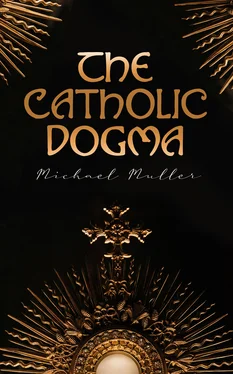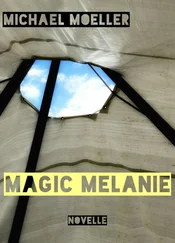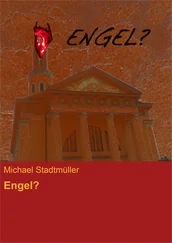Michael Müller - The Catholic Dogma
Здесь есть возможность читать онлайн «Michael Müller - The Catholic Dogma» — ознакомительный отрывок электронной книги совершенно бесплатно, а после прочтения отрывка купить полную версию. В некоторых случаях можно слушать аудио, скачать через торрент в формате fb2 и присутствует краткое содержание. Жанр: unrecognised, на английском языке. Описание произведения, (предисловие) а так же отзывы посетителей доступны на портале библиотеки ЛибКат.
- Название:The Catholic Dogma
- Автор:
- Жанр:
- Год:неизвестен
- ISBN:нет данных
- Рейтинг книги:4 / 5. Голосов: 1
-
Избранное:Добавить в избранное
- Отзывы:
-
Ваша оценка:
- 80
- 1
- 2
- 3
- 4
- 5
The Catholic Dogma: краткое содержание, описание и аннотация
Предлагаем к чтению аннотацию, описание, краткое содержание или предисловие (зависит от того, что написал сам автор книги «The Catholic Dogma»). Если вы не нашли необходимую информацию о книге — напишите в комментариях, мы постараемся отыскать её.
The Catholic Dogma — читать онлайн ознакомительный отрывок
Ниже представлен текст книги, разбитый по страницам. Система сохранения места последней прочитанной страницы, позволяет с удобством читать онлайн бесплатно книгу «The Catholic Dogma», без необходимости каждый раз заново искать на чём Вы остановились. Поставьте закладку, и сможете в любой момент перейти на страницу, на которой закончили чтение.
Интервал:
Закладка:
Strange, to call a priest THE most prominent priest in the United States without giving the public his name. The Cardinal Archbishop, and all other Archbishops, and Bishops, and all the priests, and even every Catholic of the United States would have thanked him for letting them know who, in his opinion, is not only a prominent, but even THE MOST prominent priest in the United States. For brevity's sake we shall call him "Sir Oracle."
The Rev. Editor and his brother-priest, the writer of "Queer article," are peremptory and self-sufficient in proclaiming their erroneous opinions, as if they had nothing better to learn from the Church and her holy doctors. To them may be applied what St. Francis Xavier wrote one day to one of the Jesuit Fathers; namely: "You, like so many others who resemble you, are greatly mistaken, when you fancy you can follow your opinions and judgment, merely for the reason that you are Members of the Society." (Life of St. Fr. Xav.)
"Did you read in the Buffalo Union and Times, the article "Queer Explanation?" I asked a priest. "I did," he answered: "What did you think of it?" - "I thought the writer of it is an illustration of what Cardinal Manning says in his work The Vatican Council namely: `A school of errors partly sprung up in Germany by contact with Protestantism, and partly in England, by the agency of those who, being born in Protestantism, have entered the Catholic Church, but have never been liberated from certain erroneous habits of thought.'"
"What does your Reverence advise me to do, in the matter? Will it be well for me to return to "Sir Oracle" the compliments which he has made to the author of `Familiar Explanation of Christian Doctrine?'quot; - "Indeed, it is not only well, but even a duty for you to do so on account of the readers of the B. U. and T., some of whom may have received false impressions, especially liberal Catholics, who never learned well the reasons of the faith that is in them. Hence, if you were silent, and omit to give strong proofs for the Catholic doctrine in question, Catholics and even Protestants who read the article "Queer Explanation" would, in fact, begin to doubt your doctrine, and that writer would triumphantly assert that you had been silenced by the anonymous assertions brought forward by him, and published by the Rev. Editor of the B. U. and T., who has made that article all his own, by cheerfully endorsing every statement of it. Expose, therefore, to the Public his counterfeit theology by contrasting it with sound theology, so clearly explained that even the most ignorant can understand it."
"Should these compliments be returned through the B. U. and T.?" The B.U. and T. would indeed be bound to communicate them to all its readers; but as the instructions conveyed through a newspaper are easily forgotten, and often thrown into the waste basket, I advise you to have them printed and published in pamphlet form through the energetic Publishers, Benziger Brothers. If you writer these compliments, like all your other works, and have them published at a cheap price, they will have a wide circulation, and thousands of Catholics and non-Catholics will devour them and be benefited by them. If certain priests are so very ignorant in matters of great importance how ignorant must be those who never had an opportunity to learn sound Catholic theology concerning certain dogmatical truths.
"That there are such also among the German Clergy is evident from the fact that, in 1886, the Rev. A. Klug published, in Germany, a new catechism, in which he asserts that `Protestants are saved in those truths which they hold with us in common.' Cardinal Manning also says in his work, The Vatican Council, `that many of the clergy were brought up in dangerous traditional errors during two hundred years, up to the time of the Vatican Council; that their errors were owing to the fact that they never conceived a clear and precise idea of the Church, because they never had a clear and precise knowledge of the supreme power of her Head; that, unless this be distinctly understood, the doctrine of the Church will always be proportionally obscure; the doctrine of the Church does not determine the doctrine of the Primacy; but the doctrine of the Primacy does precisely determine the doctrine of the Church.'
"Many are still affected by those errors and entertain erroneous views of certain Catholic doctrines; you know, it is not an easy task to get rid of the errors of the intellect and of lying spirits. If you, then, clearly show the errors of these men, you will earn the thanks of the greater part of the American clergy and laity, and even of many honest Protestants, who are eager to know the true religion."
These remarks of a pious priest are very correct.
The present age is completely absorbed in speculations of every kind—political, commercial, literary, scientific, and even religious; so that the source whence the rising generation ought to derive more knowledge of their moral and religious duties is contaminated by invincible pride, immoderate luxury, ridiculous fashion, self-interest, and general ignorance of the doctrine of salvation. Hence the predominant tendency of the present generation is to enjoy material life, indulge the passions, gratify the sensitive and appetitive powers, and neglect the religious cultivation of the intellect, heart, and soul. It is, therefore, the indispensable duty of priests, parents, and of all those who have the spiritual direction of children and Christian families, to communicate to all sound Catholic doctrine as the great means to oppose and to cure the moral leprosy of the age. This is the only object we had in view in publishing our catechisms and other larger works for every class of society. Quack doctors in all sciences, speculating pedants in literature, monopolists of every kind, and hypocrite in religion and politics, are contemptible in every age and nation and deserve universal animadversion. This language may tickle and fret some individuals. The exposition of Catholic doctrine in our smaller as well as in our larger works is too Catholic for the consciences of certain men, who, on this account, will not fail to heap upon us their rancorous and vindictive criticisms in pharisaical language. One day St. Alphonsus said that he though he could bear in silence every insult offered to him except one: that of being called a heretic. We, too, are ready to bear in silence personal insults, except one - that of having misrepresented Catholic doctrine in any of our works. Even from our childhood the study of our religion has been our greatest pleasure; we have always loved it too much to misrepresent any truth whatsoever. We have taken unspeakable pains to make it plain and attractive to all classes of society, even to the little ones. We have never published a line that was not read by excellent theologians before it went into the hands of the printer. Hence we have felt it our duty to vindicate, in strong language, the insult which has publicly been offered to us in the B. U. and T. We have now one foot in the grave and the other shall soon follow it. We, therefore, have no reason to be a coward in publishing the truths of the Catholic religion and in opposing erroneous principles. It would, indeed, be a great shame for us to keep silence in a matter of the greatest importance. If there are priests who are bold enough to make false and fallacious assertions concerning our holy religion, without any due respect to learned and pious Prelates and priests and the Catholic Press in general, who have bestowed high praises upon our works, for their orthodox and solid teaching, we must not be less bold in showing to the Public the ignorance of those priests in matters in which the salvation of souls is at stake.
Since we wrote the above we have received a copy of the Buffalo Catholic Union and Times, issued March 22, 1888 in which an article is published, headed "Have Protestants Divine Faith?" The writer of it is the Rev. Alfred Young, a Paulist Father of New York. The article is written to corroborate at least part of that written by the "Most Prominent Priest of the U. S." He praises the Rev. Father Cronin for having published that article "Queer Explanation." We are very sorry for the grave errors which these priests have taught the public, not of course, intentionally, but because they knew not what they were doing.
Читать дальшеИнтервал:
Закладка:
Похожие книги на «The Catholic Dogma»
Представляем Вашему вниманию похожие книги на «The Catholic Dogma» списком для выбора. Мы отобрали схожую по названию и смыслу литературу в надежде предоставить читателям больше вариантов отыскать новые, интересные, ещё непрочитанные произведения.
Обсуждение, отзывы о книге «The Catholic Dogma» и просто собственные мнения читателей. Оставьте ваши комментарии, напишите, что Вы думаете о произведении, его смысле или главных героях. Укажите что конкретно понравилось, а что нет, и почему Вы так считаете.












